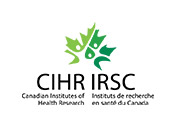Information and Permissions
PHC settings and Emergency Departments (EDs) are critical contexts within which issues of health equity and inequities must be addressed, particularly in light of ongoing reductions in community-level primary care services in most jurisdictions in Canada, with increasing pressures on EDs to bridge the gaps in care. Yet, limited attention has been given to defining what constitutes equity-oriented health care from the perspective of patients, or to developing appropriate and valid ways of measuring such care.
Throughout the EQUIP program of research, our intention has been to invite people to describe their experiences of care in ways that explicate EOHC. In the EQUIP PHC study, we mobilized data to develop the EOHCS – Ongoing (initially abbreviated to E-HoCS). The EOHCS – Ongoing was developed in PHC contexts delivering team-based care, in which there is an assumption of an ongoing relationship between patients and a health care setting. Subsequently, for the EQUIP Emergency study, we modified the scale to capture experiences of care in a single visit. Since care is provided on an episodic basis, this scale is called the EOHCS – Episodic.
Format and Scoring of the 12-item EOHCS – Ongoing
The EOHCS – Ongoing is comprised of 12 items that reflect 5 domains of EOHC. Respondents are asked to rate, in the previous 12 months, the extent to which their interactions with health care staff were equity-oriented on a 5-point scale ranging from never (0) to always (4).
The EOHCS – Ongoing total score is a count of the number of items rated by patients as “always” occurring (for 10 positively worded items) and “never” occurring (for two negatively worded items), with a range of 0 to 12. Scores on the EOHCS – Ongoing provide an index of the degree or level of equity-oriented health care (EOHC), from lower to higher.
Format and Scoring of the 9-item EOHCS – Episodic
The EOHCS – Episodic is adapted from the EOHCS – Ongoing, however, given the different relationships patients have in accessing care in different contexts – primary health care and emergency departments – the response options and time frame were adapted to reflect patient experiences during a single visit. The EOHCS – Episodic is comprised of 9 items that reflect 5 domains of EOHC. Respondents are asked to rate whether their interactions with staff were equity-oriented, using a binary response scale, yes (1) or no (0).
The EOHCS – Episodic total score is a count of the number of items rated by patients as “yes” (1) for all items except “discriminated against you” which received 1 point in the count for “no” responses, with a range of 0 to 9. Scores on the EOHCS – Episodic provide an index of the degree or level of episodic EOHC, from lower to higher.
Although developed in an emergency health care context, the EOHCS – Episodic may be appropriate in other health care contexts, such as walk-in clinics, urgent care centers, and outpatient departments.
Permissions Process
The EOHCS – Ongoing and the EOHCS – Episodic are freely available and downloadable below. We ask that you send us a brief email (equip.healthcare@ubc.ca) informing us of the purpose and setting in which you are considering using either EOHCS. We are using this information to track how the EOHCS – Ongoing and EOHCS – Episodic are being used, whether the scales are reliable and valid in these contexts, and any lessons related to the content or format (e.g., difficulties in administration).
If you are willing to share basic information with us about how the scale performed in your study (i.e., descriptive statistics for the items, subscale and total scores, reliabilities), we will add this to our records so that others can benefit from your work. We would appreciate it if you could send this information to us when your study has been completed.
References
- Browne AJ, Varcoe C, Ford-Gilboe M, Wathen CN, Barker E, Bungay V, et al. (2024) Using a health equity lens to measure patient experiences of care in diverse health care settings. PLoS ONE 19(6): e0297721. https://doi.org/10.1371/journal.pone.0297721
- Browne, A. J., Varcoe, C., Ford-Gilboe, M., & Wathen, C. N., on behalf of the EQUIP Research Team (2015). EQUIP Healthcare: An overview of a multi-component intervention to enhance equity-oriented care in primary health care settings. Int J Equity Health, 14(152). doi:10.1186/s12939-015-0271-y
- Browne, A. J., Varcoe, C., Ford-Gilboe, M., Wathen, C. N., Smye, V., Jackson, B. E., . . . Blanchet Garneau, A. (2018). Disruption as opportunity: Impacts of an organizational health equity intervention in primary care clinics. International Journal for Equity in Health, 17(1), 154. doi:10.1186/s12939-018-0820-2
- Ford-Gilboe, M., Wathen, C. N., Varcoe, C., Herbert, C., Jackson, B. E., Lavoie, J. G., . . . Browne, A. J. (2018). How equity-oriented health care affects health: Key mechanisms and implications for primary health care practice and policy. Milbank Quarterly, 96(4), 635-671. doi:10.1111/1468-0009.12349





